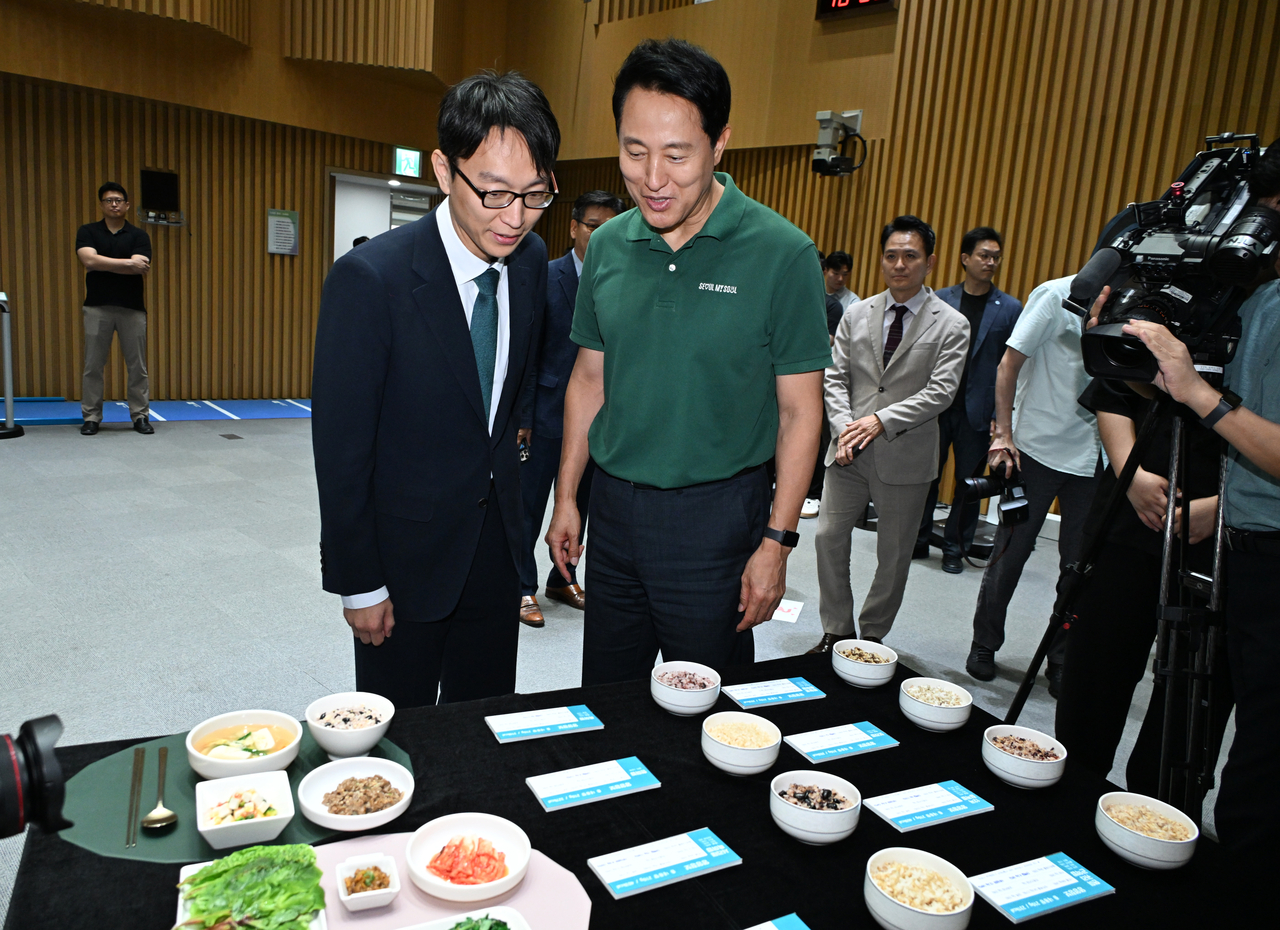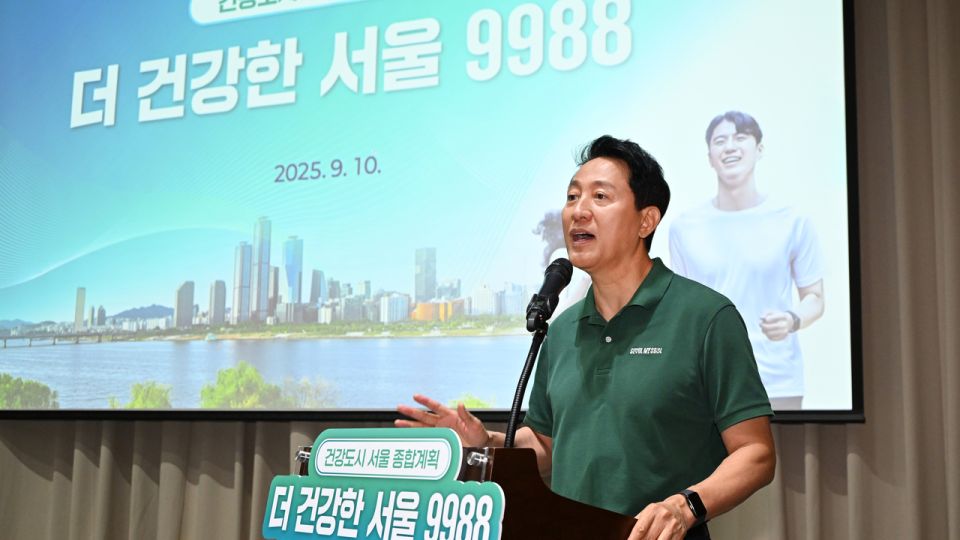September 11, 2025
SEOUL – The Seoul Metropolitan Government announced a health initiative on Wednesday, aimed at extending residents’ life expectancy by three years and raising physical activity levels by 3 percentage points by 2030.
On Wednesday, Seoul Mayor Oh Se-hoon unveiled Seoul’s citywide health initiative, seeking to make healthier diets and regular exercise everyday habits through expanded health facilities, healthier food programs and targeted exercise and care programs for the elderly.
The plan was launched after a city government survey revealed a significant gap between average life expectancy and healthy life expectancy. While Seoul residents are expected to live an average of 83.2 years, their healthy life expectancy — the years lived free of illness — is only 70.8, leaving a gap of more than 12 years.
Under the plan, each of Seoul’s 25 districts will hold at least one fitness certification center by the end of 2025.
“At the centers, citizens will be able to measure their physical health conditions and will be recommended workout routines or specific exercises based on their conditions by a physical health expert,” said Oh during Wednesday’s briefing.
The city government also aims to expand the number of such centers, with a goal of operating 100 health centers of a similar nature by 2030.
The city government added that this initiative will also link to the city’s own digital platform, “My Trainer Seoul.” The app offers personalized exercise plans as well as guidance through certified fitness instructors and public exercising groups, such as running crews, to support ongoing fitness activity.
Additionally, Seoul will expand access to community sports centers. By 2030, the city plans to establish 100 “virtual-reality sports centers” that can be used regardless of weather conditions and open 100 school sports facilities to the public to reduce health disparities across regions and age groups across the city.

Seoul Mayor Oh Se-hoon (right) looks at healthy food options such as whole grain and mixed grain rice as well as side dishes featuring vegetables and protein during a press briefing on the city government’s health initiative targeting its citizens at Seoul City Hall on Wednesday. PHOTO: SEOUL METROPOLITAN GOVERNMENT/THE KOREA HERALD
The city government added that it also aims to reshape the citizens’ eating habits.
“Through the city’s ‘One Healthy Bowl’ program, diners will be able to swap out white rice for whole grains or mixed grains in both restaurants and food delivery applications,” Oh added. “The program is expected to launch with 1,000 participating restaurants this year to expand to 15,000 by 2030.”
Convenience stores and snack shops in schools will also be encouraged to set up Healthy Kids Zones that prioritize low-sodium, low-sugar snacks, to begin at 300 locations by 2026, expanding to 2,000 by 2030.
As Korea formally became a superaged society in December, the city government added that it also plans to place heavy focus on supporting seniors at elderly health care centers.
Doctors, nurses, nutritionists and exercise specialists will be on site at health care centers to provide health support ranging from preventive care — managing chronic diseases and supporting healthy aging — to integrated care, including exercise, nutrition and emotional support.
“The city we envision is one where all citizens can enjoy a healthy and happy life,” Oh said. “Beyond individual efforts, (the city government) will support the citizens’ health through tailored policies and social systems.”


